'My house is full of garbage': In West Java, imported waste worsens living conditions of villagers
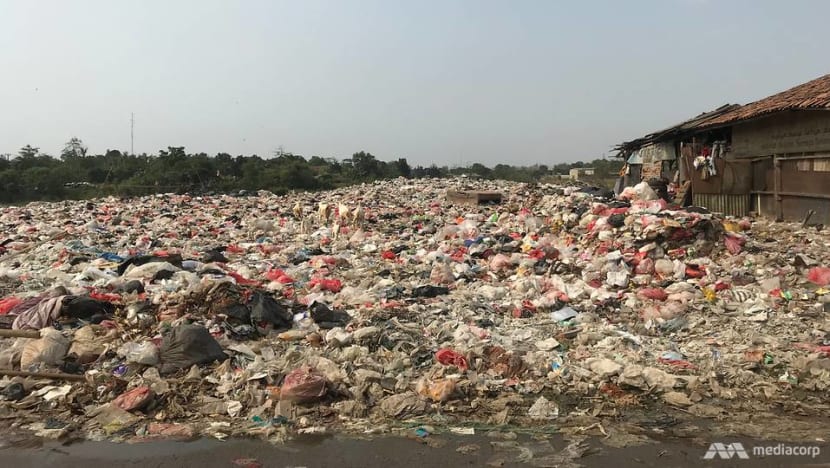
Imported waste has found its way to the Indonesian village of Burangkeng, just outskirts of capital Jakarta, since 2018. (Photo: Kiki Siregar)
BEKASI, West Java: Since he was born 45 years ago, Mr Jefri has been living next to an illegal dump site in Burangkeng in Bekasi city, some 20km to the east of Indonesia’s capital Jakarta.
He is used to the foul garbage smell that hangs in the air, but the situation at the village worsened in the past year when residents started noticing that imported waste was also being discarded at the site.
Items such as food packaging of vegetable chips from Australia, quinoa from Canada and whole wheat bread from the United States were found among the trash - a clear indication that the waste originated from other countries as such products are not widely available in Indonesia.
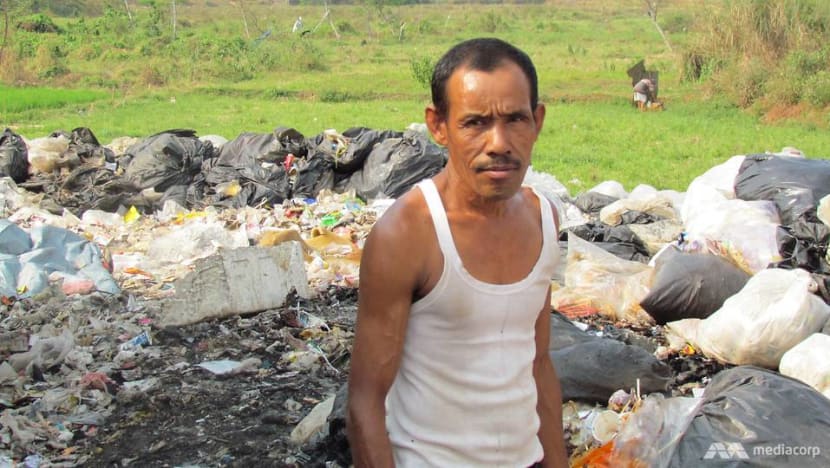
“It’s very scary. Bekasi and Jakarta have already experienced floods due to irresponsible dumping of waste, and then came the imported waste. My house is full of garbage,” Mr Jefri, who goes by one name, grumbled while sorting through the waste at his backyard.
With the addition of foreign waste, the illegal dump site has expanded to the size of a football field. The stench is overpowering and the flies infesting the site are unwelcome guests inside Mr Jefri’s house.
READ: The Indonesian village being buried by the developed world’s waste
READ: Indonesia returns containers of waste to France, Hong Kong
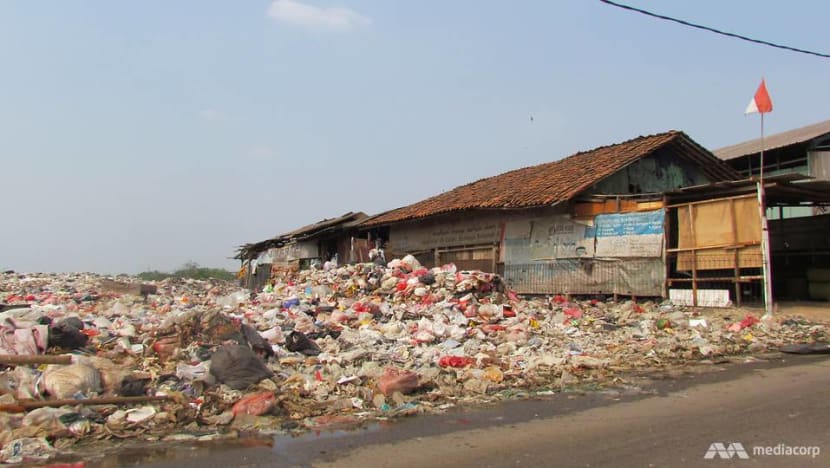
Bekasi, a satellite city of more than two million people, made headlines a couple of months ago when the Burangkeng villagers staged a demonstration to demand financial compensation for the misery they suffer.
Their plight offered a glimpse into the problem of imported waste which is plaguing Indonesia.
Huge quantities of trash were rerouted to Southeast Asian countries following China’s decision to reject foreign waste in January last year.
Realising the urgency and magnitude of the issue, Jakarta has since tightened import rules and customs inspections, and sent back hundreds of tonnes of foreign waste to their origin countries.
However, environmentalists have remained sceptical. Without specific regulations and harsh law enforcement, they are not convinced that Indonesia’s waste problem can be solved quickly.
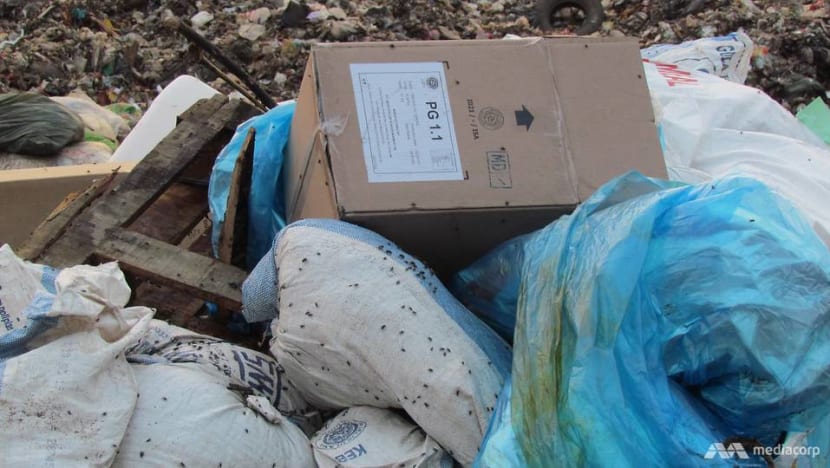
READ: Trash for tickets on Indonesia's 'plastic bus'
VILLAGERS PUTTING UP WITH FOREIGN TRASH
While there are now additional controls at Indonesia's ports to control the importation of waste, officials are apparently not on the hunt for foreign material which has got into the country despite the increased measures.
A spokesperson from the environment ministry approached by CNA said he was not aware of the presence of foreign waste at Burangkeng.
The villagers suspect that a local company that imports paper scraps was responsible for dumping the foreign waste near their homes, although they noted that it had stopped doing so since the government cracked down against such imports.
However, the piles of trash have remained at the site, and the villagers said living so close to the illegal dumping ground has taken a toll on their health.
Mdm Emi, who lives about 100m away, is angry: “The stench isn’t just smelly, it’s disgusting!”
The foul smell is so horrible that the 85-year-old claimed she has vomited a number of times when trying to eat. Mdm Emi also said she has to see a doctor every fortnight because of the terrible headaches which she blames on living so close to the piles of trash.
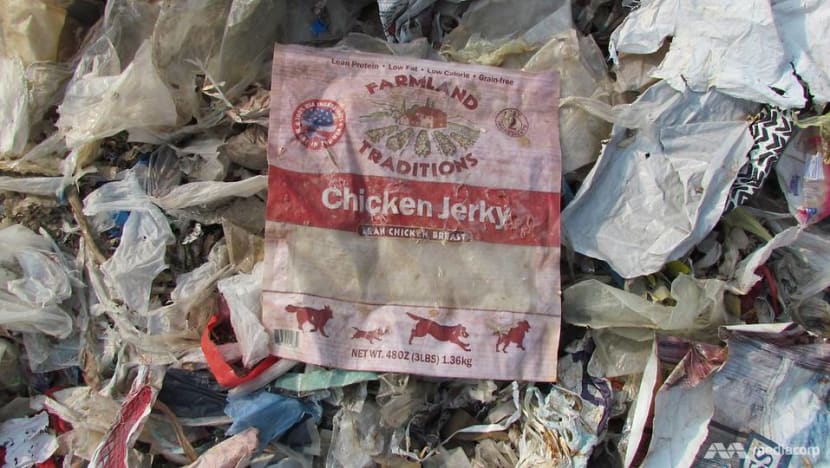
Another villager, who did not want to be named, claimed that the foreign waste has polluted their water.
“When I shower, I feel itchy. It wasn't like this before,” she said.
The village head of Burangkeng, Mr Umar, said scavengers have also experienced rashes after entering the illegal dump site.
“The only thing we can do now is to mix the trash with soil, hoping to turn it into compost. We villagers don’t know much,” he said.
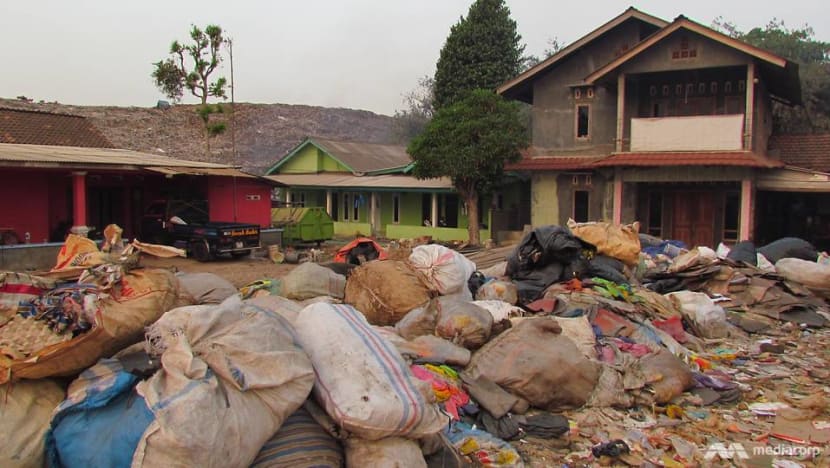
READ: Recycling makes you feel less guilty but doesn’t change how huge our plastic problem is, a commentary
INDONESIA TACKLING FOREIGN WASTE PROBLEM
Indonesia, as the world’s second ocean plastic waste polluter after China, has struggled to deal with its own rubbish for decades.
When China turned away foreign waste, Indonesia’s imports of waste rose sharply from 10,000 tonnes per month in late 2017 to 35,000 tonnes per month late last year, according to a Greenpeace report.
Official data from Indonesia's statistics agency showed imports of plastic waste increased by 141 per cent last year to 283,000 tonnes.
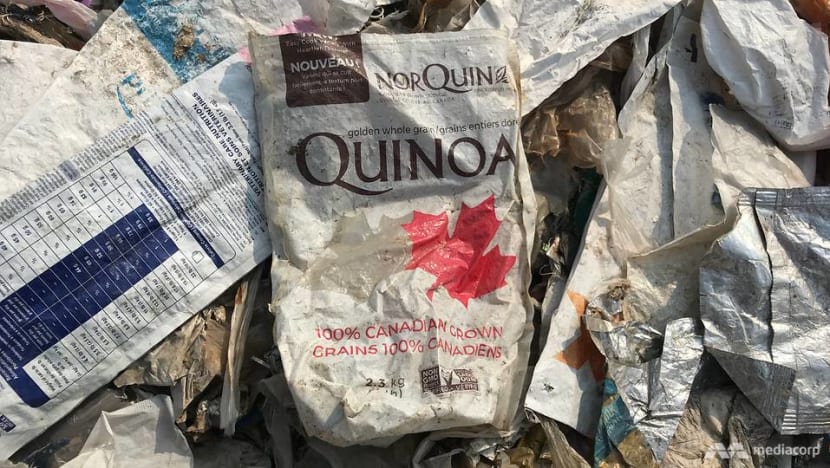
The archipelago only allows paper scraps to enter Indonesia, but environmental non-governmental organisation Ecoton estimated that about 20 per cent of paper waste shipment includes other non-paper items, such as household and business waste.
To tackle the problem, Indonesia is following the steps of neighbouring countries Malaysia and the Philippines to return such waste to the countries of origin.
Since June, it has sent numerous containers back to the US, Australia, France and Hong Kong after it discovered containers containing illegally imported waste at its ports.
“If we find imported waste at the ports, our customs officers will immediately repatriate it to the exporting country.
“But if the container has already left the port, we will need to investigate who imported it and what is inside. If there’s hazardous waste, then we will sanction the importers and demand them to return the waste to the originating country,” environment ministry spokesman Djati Witjaksono Hadi told CNA.
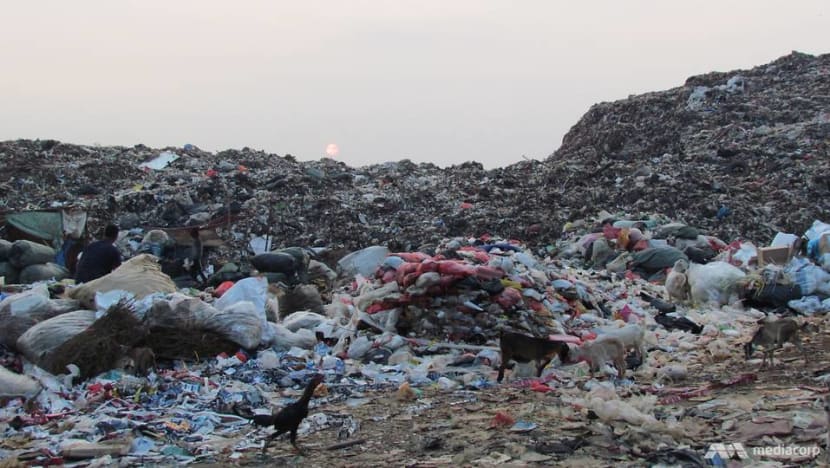
Greenpeace Indonesia is urging the government to be bold when dealing with the issue.
“It has to have a strong position, so we can tell people outside our country, governments of other countries and also other industries, we don’t want to receive any more foreign waste because we have to deal with our own problems,” Greenpeace's Urban People Power Campaigner Muharram Atha Rasyadi said.
While the crackdown on foreign waste has upset residents of Bangun in East Java, whose main source of income is scavenging through the imported thrash, the Burangkeng villagers said they do not welcome this junk.
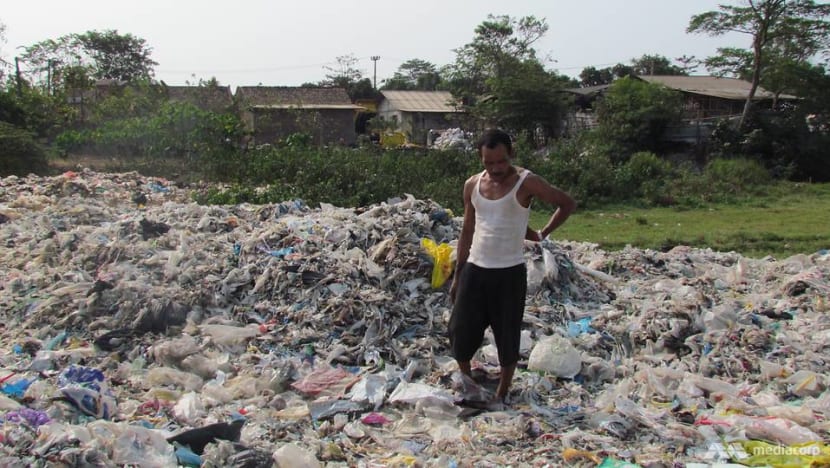
Mr Jefri said the villagers would continue to press the authorities for compensation.
“Most importantly, our country Indonesia should not be filled with rubbish.
"Indonesia will be a dumping site if foreign waste keeps coming,” he said.














